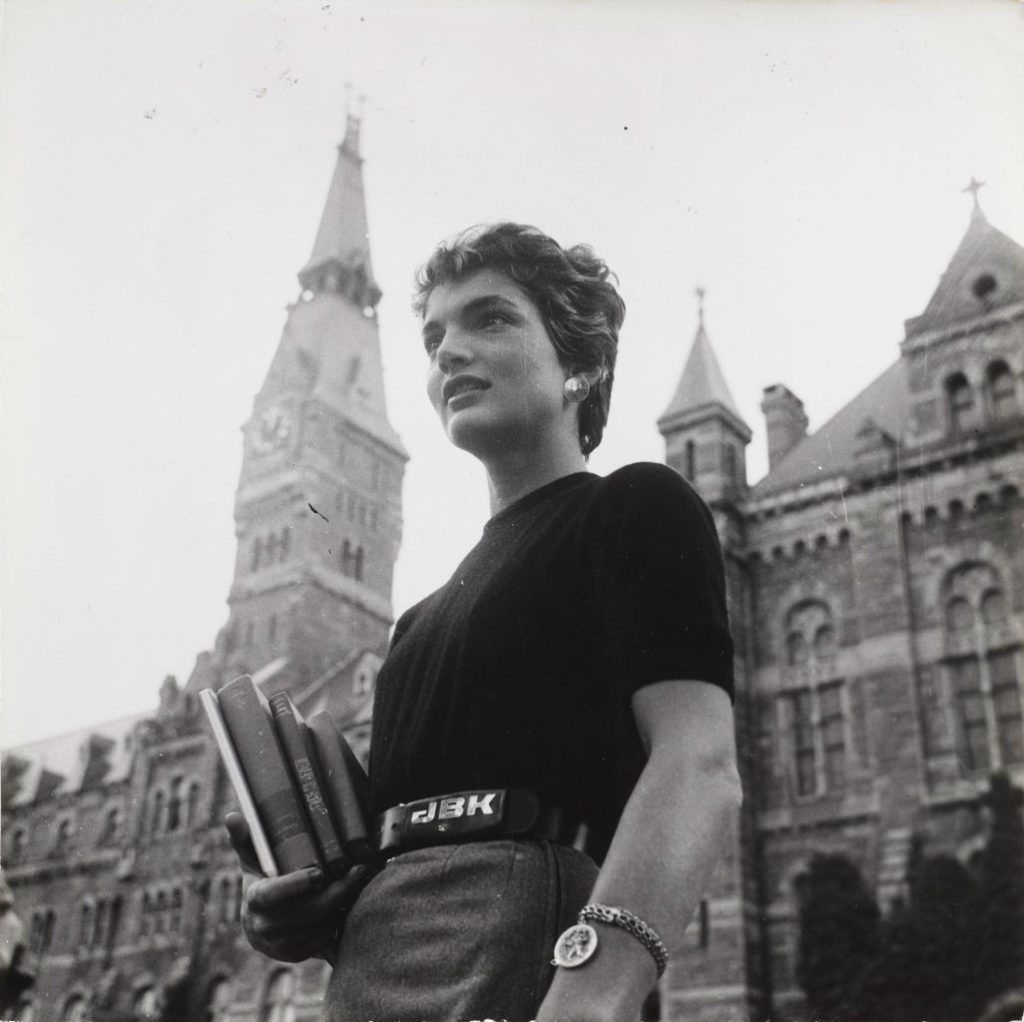Jackie Kennedy’s Francophilia
By • July 10, 2019 0 4417

In the 1950s, Jacqueline Kennedy was a young congressional wife taking courses in American history at Georgetown University, just a short walk from her home.
I can see her now: her pixie cut, then all the rage thanks to Audrey Hepburn’s look in “Sabrina,” and her doe eyes, coquettishly glancing up at her professor.
Maybe she walked to class, with her books in one hand and a dog leash in the other. I can hear her recounting what she’d learned to her amused husband when he returned from work.
In any event, her coursework solidified her already deeply rooted Francophilia.
In her Georgetown studies, she would likely have read (or reread) Alexis de Tocqueville and learned even more about France’s dogged interference in the American Revolution on our behalf.
Her French had been refined while she spent time in France as a George Washington University student, living with French aristocrats. Some have even speculated that the young Jackie was deflowered during that year abroad, which she later called the best time of her life.
Later, she would worry that her French speaking might be a political demerit — a turnoff to voters. But her husband, to his credit, never asked her to be more or less than she was.
Her chic style was no doubt honed during her time in France and by her following the French fashion houses. This style was distilled down to the American housewife; the “Jackie look” is still ascribed to celebrity women today.
When she went to Paris as first lady, Jackie dazzled the French press (not an easy bunch) and impressed an even bigger cynic: French President Charles de Gaulle. He told President Kennedy that Jackie knew more about French history than most Frenchwomen.
Imagine a Frenchwoman asking an American president about Henry Clay, someone explained by way of comparison.
And the National Gallery of Art never would have been loaned the Mona Lisa without Jackie’s special relationship with André Malraux, the French minister of cultural affairs. Jackie nurtured a lifelong love of French culture, partly because of her French heritage — she was a Bouvier — but also, I think, because she loved larger-than-life characters and stories.
Just think of the French royal mistresses alone, and you’ve got plenty of fascinating material. In the final years of her life, Jackie edited many books relating to these characters, including “False Dawn: Women in the Age of the Sun King” by Louis Auchincloss (a cousin by marriage) and “Secrets of Marie Antoinette: A Collection of Letters” by Olivier Bernier.
She made one last visit to Paris before she died in 1994, relishing her time in the city that formed a mutual admiration society with her.
France was always her friend, but I’d like to think that her time in Georgetown and Washington made it her soul mate.

